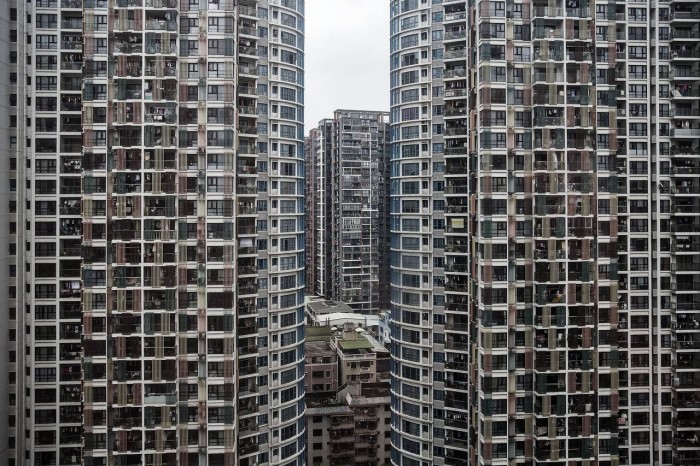
Wall Street Journal writes: "The "land kings" are back. That had been a nickname for Chinese developers paying sky-high prices for land parcels during China's property boom earlier this decade, which left so-called ghost cities of unsold housing across China. Now, with housing prices in China's larger cities again rising rapidly, frothy bids for land parcels are back. On June 8, Logan Property Holdings Co. agreed to pay 14.1 billion yuan ($2.14 billion) for a piece of land in Shenzhen's Guangming district, the largest-ever price tag in the southern Chinese city...Earlier in June, a joint venture between two firms, one of which is backed by state-owned Power Construction Corp. of China, outbid 17 rivals with an 8.3 billion yuan offer for a plot in Shenzhen's Longhua district. The soaring land prices show the challenges facing the government as it tries to prevent property bubbles. Moves to stimulate China's slowing economy and to trim excess housing in smaller cities across the country—such as interest-rate cuts and eased mortgage rules—have fed into speculative demand for homes in top-tier cities that are now scrambling to cool prices."
Financial Times comments that the sudden death of China's most influential "dove" has shaken China's close-knit circle of international policy advisers and removed the most public voice for international engagement during a period of tension along China's maritime borders. Retired ambassador Wu Jianmin, 77, died in a car crash before dawn on Saturday morning in the central Chinese city of Wuhan. An interpreter for Mao Zedong and Zhou Enlai, he served as China's ambassador to France, the Netherlands and the United Nations in Geneva before heading the influential Foreign Affairs University in Beijing. In retirement Mr Wu became the public voice defending China's choice to engage with the existing world order, and was derided as a "dove" by a growing chorus of more assertive nationalists. His views were mainstream in the 1980s and 1990s but slipped into a minority during the current presidency of Xi Jinping, who believes in a stronger, more independent role for China unshackled by US-dominated institutions.
Wall Street Journal writes: " It isn't a secret that some companies seek to buy favorable news coverage or that many journalists pad their incomes with envelopes of money slipped to them at press conferences, or after interviews. Now, an app takes "envelope journalism" to a new level. The mobile application Zhao Jizhe — Find a Journalist in Chinese — connects companies seeking publicity and journalists interested in pocketing some extra cash. Zhao Jizhe offers services tailored to companies of all sizes and needs. For as little as 1,000 yuan, or roughly $150, Zhao Jizhe can get the company an ordinary writer, and publicity on one publication is guaranteed, according to the app. Companies with a higher budget can choose mid- or high-level writers. The premium service, at 8,000 yuan, comes with a senior writer, and a guaranteed coverage on 25 publications, including four well-known ones. The app appears to have raised some alarm bells. At last look, it was frozen and reports in Chinese tech media say that regulators have cracked down. A spokesman for Zhao Jizhe said the company is redesigning the software and declined to give further comments."
- 2016-06-17 China climate goals trigger launch of new derivatives
- 2016-06-16 Shanghai Disneyland opens with hopes cash will rain down
- 2016-06-15 China bans exports to NKorea with possible military use
- 2016-06-14 China, US Hold Talks to Bridge Cybersecurity Differences
- 2016-06-13 China investment growth slowest since 2000
- 2016-06-12 'Chinese Hawaii' Shows Xi's Anti-Graft Drive Hasn't Hurt Economy
- 2016-06-10 South Korea Sends Military Boats to Repel Chinese Fishermen
- 2016-06-09 Japan Protests to China After Spotting Chinese Warship Off Disputed Islands
- 2016-06-08 U.S. Accuses Chinese Jet of Flying Too Close to American Plane
- 2016-06-07 U.S. presses China to reduce barriers for foreign business
- Financial Times China seeks to renegotiate Venezuela loans
- Bloomberg China May Home Prices Rise in Fewer Cities Amid Slower Sales
- Wall Street Journal Indonesian Warship Fires on Foreign Fishing Boats in South China Sea
- The Telegraph China's 'Ivory Queen' in court for smuggling more than 700 tusks
- New York Times Defying China, Hong Kong Bookseller Describes Detention
- Reuters China's Xi sees Serbia as milestone on new 'Silk Road'
- The Washington Post India sure of China's support for nuclear group's membership
- Fox News Chinese villagers protest after police detain elected leader
- Forbes Bad Assets To Soar In China's Interbank Market
- Reuters China foreign minister urges US not to interfere with Tibet in call to Kerry
- New York Times US Carriers Sail in Western Pacific, Hoping China Takes Notice
- Forbes South China Sea Mission: Advanced U.S. Attack Jets Arrive In Philippines
- Financial Times China looks like a bully in South China Sea row
- Bloomberg China's Silk Road Hits the Buffers
- The Washington Post US 'hypocrisy' and Chinese cash strengthen Beijing's hand in South China Sea
- Forbes China's Friends List: Beijing Drumming Up South China Sea Support Weeks Ahead of Court Ruling
- Forbes Asia Pacific At A Crossroads: Between Conflict And Peaceful Social Rise
- New York Times Asia Pacific|China's Last Wild River Carries Conflicting Environmental Hopes
